The John D Matthews Postgraduate Award
A prize awarded annually to a postgraduate student in CCBS.
The Award
The John D Matthews Postgraduate Award for Medical Research is awarded annually to a postgraduate student in the Centre for Clinical Brain Sciences. It is offered because of the generosity of Dr Kester Kong, an alumnus of the University's Medical School.
Eligibility
The Scholarship, which is a cash award of £750, is awarded to the MSc Research or PhD student who has demonstrated the greatest academic excellence in Neurology during the previous academic year. There will be a new recipient each year.
The funds should be spent within a year to enhance the recipient's career, research or training. Suitable examples are conference travel, collaborative visits and educational courses. The awardee will be asked to provide a short summary and breakdown of how the funds have been spent.
The Primary Supervisor of all eligible students will be contacted by the CCBS Postgraduate Administrator to invite them to submit short nominations for the prize. We will not be able to accept nominations from those not invited to apply.
Selection criteria
Academic excellence will be judged on the basis of factors including, but not limited to:
- the student having published his or her findings in a respected peer-reviewed journal
- the student having been awarded a prize or other competitive award
- the student having made a significant research discovery that is not yet ready to publish
The awardee will be selected by the Director of CCBS, Professor Colin Smith, during the Autumn of each year, and the prize will be awarded at the annual CCBS Away Day early the following year.
About John D Matthews
The late John Duncan Matthews graduated MBChB from the University of Edinburgh in 1945. He was a consultant physician at the Royal Infirmary Edinburgh from 1956 until 1986, and Honorary Senior Lecturer at the University of Edinburgh Medical School. In the latter role, he was a mentor and inspiration to countless Edinburgh medical trainees, including the donor of the Award, Dr Kester Kong MBChB (Hons) 1986.
Previous recipients
2022-2023: Dr Charis Wong
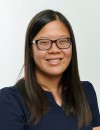 |
Charis is a neurology registrar and clinical trial fellow interested in motor neuron disease (MND) and other neurodegenerative diseases. MND is an incurable, progressive, and fatal disease affecting up to 1 in 300 people during their lifetime. The MND-SMART trial (https://mnd-smart.org/) provides an efficient clinical trial platform to test a pipeline of drugs. In her project supervised by Professor Malcolm Macleod, Professor Siddharthan Chandran, and Professor Neil Carragher, Charis aims to develop systems using different types of data to inform and optimise how drugs are selected for MND-SMART.
Please see related websites; www.ed.ac.uk/clinical-brain-sciences/research/camarades www.mrcctu.ucl.ac.uk/our-research/neurodegenerative-diseases/acord-collaboration/ |
2021-2022: Dr Maria Stavrou
 |
Dr Maria Stavrou is a Rowling Scholar at the University of Edinburgh who subsequently secured a prestigious Medical Research Council Fellowship to undertake her PhD in laboratory research into motor neuron disease (MND) at the Chandran Lab, co-supervised by Professors Chandran and Hardingham. Maria graduated from University College London and completed her medical training in London and Cambridge. She is a neurology registrar and an aspiring clinician-scientist.
|
2020-2021: Dr Tom Moullaali and Dr Una Clancy (joint winners)
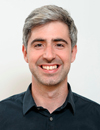 |
Tom is a neurology registrar and honorary clinical senior lecturer. His British Heart Foundation-funded PhD fellowship focussed on the association between blood pressure variability and the characteristics and outcomes of patients with stroke due to intracerebral haemorrhage.
|
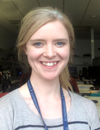 |
Una is a Chief Scientist Office clinical academic fellow in cerebral small vessel diseases (SVDs), co-ordinating the Mild Stroke Study 3 and recruiting to four other SVD studies in Prof Joanna Wardlaw’s SVD Research Group. Una is currently in the third year of her PhD, investigating neuropsychiatric symptom associations with small vessel disease.
|
2019-2020: Dr Laura McWhirter
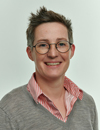 |
Laura is a consultant psychiatrist and a clinical research fellow funded by Baillie Gifford. Her research aims to identify accurate diagnostic profiles for functional cognitive disorders, an important differential of prodromal dementia.
|
2018-2019: Dr Gashirai Mbizvo and Dr Gordon Blair (joint winners)
 |
Gashirai is a Clinical Research Fellow funded by Epilepsy Research UK and The Juliet Bergqvist Memorial Fund. His research project is a nationwide cohort and case-contral study using administrative healthcare date to identify and characterise epilepsy-related mortality. |
 |
Gordon’s research uses advanced imaging techniques to study blood vessel dysfunction in patients with cerebral small vessel disease. This includes several clinical trials testing new treatments aiming to prevent small vessel disease associated strokes and dementia. |
Read more: Awards for PhD students at the CCBS Away Day 2019
2017-2018: Dr Ingrid Hoeritzauer
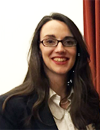 |
Ingrid is an ABN/Patrick Berthoud Charitable Trust Clinical Research Training Fellow. Her research involves prospectively phenotyping patients presenting with the clinical symptoms of cauda equina syndrome. Read more: Ingrid Hoeritzauer receives the John D Matthews award |
2016–2017: Dr Yvonne Chun
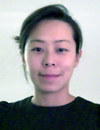 |
Yvonne is a CSO clinical academic fellow whose research focuses on therapies for anxiety disorder after stroke. With the John D Matthews Award Yvonne was able to obtain further training in data science to enhance her research work on efficient clinical trial design. She also used the award to travel to Sweden to attend the Medical Informatics Europe Conference in 2018, where she was selected to present in front of an international audience, her PhD work on ‘Applying informatics to design an efficient clinical trial for stroke patients’. Yvonne learned about the latest applications of data science technologies, mobile health, and built links with international informatics experts.
|


